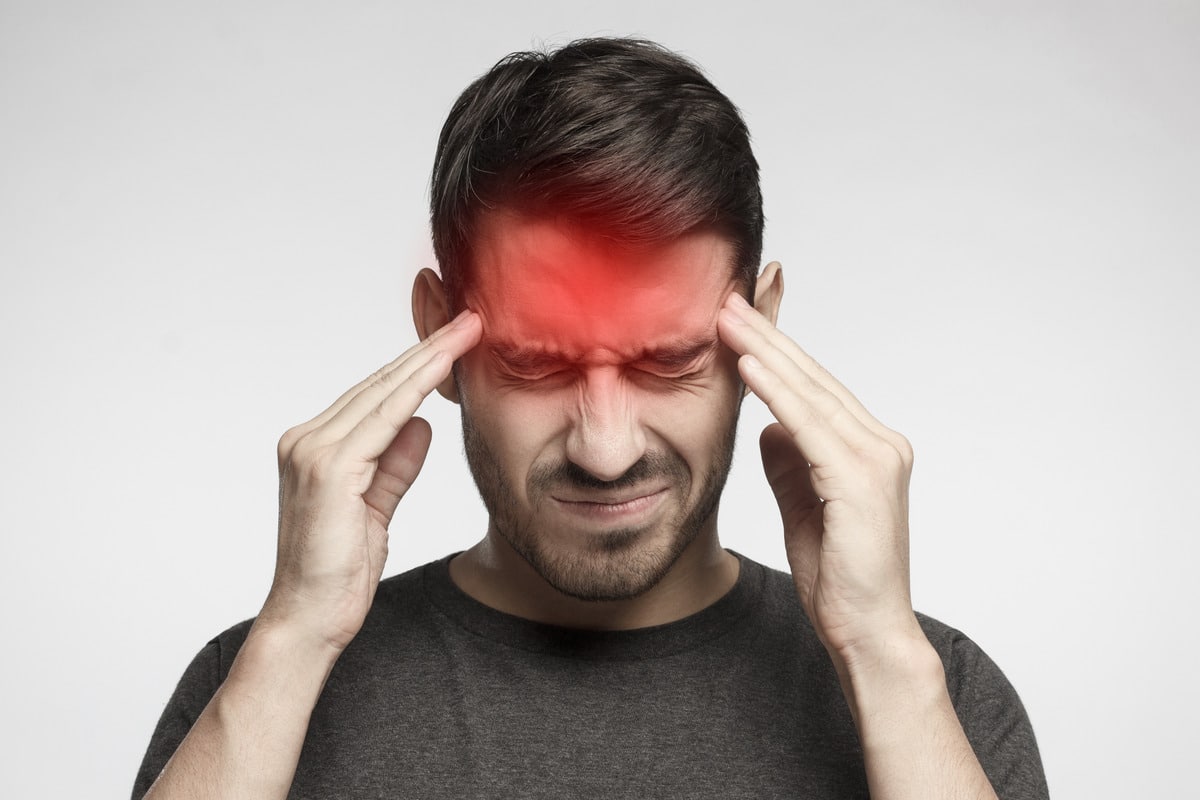
Are frequent migraine-related headaches affecting your daily activities? Headaches brought on by migraine can be inconvenient and disabling. Stress and unhealthy lifestyle habits can trigger migraine-related headaches in many people. However, the good news is that you can take practical steps to reduce the intensity and frequency of your migraine symptoms in order to have a better quality of life. In this article, we will help you understand migraine-related headaches, what triggers them, and how to prevent them.
What are Migraine-Related Headaches?
Headaches are a symptom of a migraine attack. They can cause intense pain and a pulsing sensation on one or both sides of the head. Migraine-related headaches can be so severe that they disrupt daily activities.
The exact cause of migraine has yet to be identified, but genetics play a significant role. Migraine-related headaches can start as a bearable ache and worsen over time. Unlike regular headaches, migraine-related headaches are more intense and disabling.
Migraine progresses through four stages known as prodrome, aura, attack, and post-drome. Symptoms can last for 4 to 72 hours, and the condition is commonly diagnosed between the ages of 25 and 55.
What is the Difference Between a Migraine Attack and a Migraine Headache?
Although both expressions are often used interchangeably, the expression “migraine headache” is incorrect. Headaches are only one symptom of migraine attacks, which can also cause nausea, vomiting, dizziness, and light sensitivity.
What Causes Migraine-Related Headaches?
Even experts are unsure of the exact mechanism that triggers headaches in people living with migraine. However, research and accounts from migraine patients have provided us with some insight into factors that can increase the frequency and likelihood of migraine-related headaches:
Stress
Stress is a feeling of emotional tension. It can be caused by daily interactions and obligations, what you eat and drink, and lack of sleep. An excessive amount of stress can trigger a migraine attack, which is why it’s important to look after your mental health and cultivate a mindful daily routine.
Fluctuating Hormones
Frequent hormonal changes in your body can trigger migraine-related headaches. In some cases, hormonal changes caused by birth control pills, a hysterectomy, or pregnancy can exacerbate migraine symptoms.
Changes in Routine
A sudden change in your sleep schedule or eating habits can trigger a migraine-related headache. We recommend you implement changes to your routine gradually and monitor your body’s reaction. If a certain change in routine is causing migraine-related headaches, it may be necessary to consider returning to your previous routine.
Food and Drinks
Processed foods like bacon, corned beef, hot dogs, bologna, aged cheese, and smoked fish can act as triggers for migraine-related headaches. Something that all the aforementioned foods have in common is their high tyramine content. Tyramine is an amino acid that is known to trigger migraine symptoms. People living with migraine should also avoid drinking excessive amounts of caffeine and alcohol and instead opt for a healthy diet filled with fruit, vegetables, and healthy fats.
Bright Lights
Almost all people living with migraine are sensitive to light. Some even experience light sensitivity when they are not suffering from a migraine attack. If this is the case for you, you may need to avoid brightly lit areas and wear tinted glasses.
Changing Weather
Sudden changes in weather can lead to fluctuations in serotonin levels, triggering a migraine-related headache. To prevent this from happening, you may need to stay inside when sudden weather changes occur and maintain your home’s internal temperature with a climate control system.
How to Prevent Migraine-Related Headaches
According to the American Migraine Foundation, 90% of people living with migraine report that it interferes with daily life. Unfortunately, migraine and the suffering it causes are often dismissed or downplayed. However, at Oklahoma Spine and Pain Management, we are aware of the disabling impact this condition can have and would like to provide you with ten ways you can prevent migraine symptoms and improve your quality of life:
Avoid Loud Noises and Bright Lights
Loud noises and bright lights can be common triggers for a headache during a migraine attack. If you are bothered by these types of stimuli, you can rest in a dark, quiet room with blackout curtains. If you need to leave the house, you can wear polarized sunglasses to reduce the glare of sunlight and the strain it places on your eyes. Similarly, if loud noises bother you, consider using noise-canceling headphones.
Manage Your Diet
Studies have shown that magnesium consumption may decrease the frequency of migraine-related headaches. This means that people living with migraine could benefit from incorporating magnesium-rich foods like spinach, collard greens, black beans, chia seeds, and pumpkin seeds into their diet. In addition, maintaining an adequate intake of healthy fats can decrease the frequency of migraine symptoms. Conversely, people living with migraine should avoid red wine, chocolate, aged cheese, dried fruits, smoked meats, and artificial sweeteners and food additives.
Keep a Migraine Diary
Keeping a migraine diary can help you pinpoint which foods, activities, changes in routine, and external stimuli trigger your migraine-related headaches. By identifying triggers, you will know what changes need to be made to prevent migraine symptoms. A migraine diary can also help your healthcare provider to prescribe the best form of treatment.
Pay Attention to Hormonal Changes
For women, headaches caused by migraine may be linked to hormonal changes prior to and during menstruation. If your migraine symptoms align with menstruation, a healthcare professional can prescribe medication for prevention and/or pain relief. You can also relieve migraine-related headaches by applying an ice pack or doing exercises for relaxation.
Take Medication if You Feel a Migraine Attack Coming On
If you catch a migraine-related headache in its early stages, you can control its severity by taking medication before it gets worse. Common migraine medications include triptans, NSAIDs, and over-the-counter pain relievers.
Adapt to Sudden Weather Changes
For some people living with migraine, sudden changes in weather cause hormonal fluctuations, which can lead to a migraine attack. For this reason, it’s important to get in the habit of checking weather forecasts and preparing for extreme weather conditions. On extremely hot or cold days, you should stay indoors and adjust your climate control system to maintain a comfortable ambient temperature.
Maintain a Regular Sleep and Meal Schedule
Many people living with migraine report an increase in migraine symptoms when they oversleep or don’t sleep enough. It’s important to get at least seven hours of uninterrupted sleep to prevent migraine-related headaches. Additionally, skipping or delaying meals can cause your blood sugar to drop and trigger a migraine attack. For this reason, people living with migraine should maintain a consistent meal schedule.
Practice Relaxation Techniques
Excessive stress is one of the most common triggers for migraine-related headaches. With proper relaxation techniques, you can manage your stress levels and reduce the intensity of migraine-related headaches. Here are some effective relaxation techniques for people living with migraine:
- Deep breathing
- Meditation
- Listening to soothing music
- Progressive muscle relaxation
- Guided visual imagery
Do Some Low-Intensity Exercises
Strenuous workouts can sometimes trigger migraine-related headaches, so it’s better to opt for low-intensity exercises in order to stay active. Some examples of low-intensity exercise include yoga, walking, and cycling at a slow pace. These activities can be beneficial for migraine pain because they release endorphins, which are natural painkillers.
Stay Hydrated
If you suffer from migraine-related headaches, staying hydrated can reduce their severity, duration, and frequency. It’s easy to get dehydrated on hot days or while exercising, so remember to drink regularly.
Conclusion
Migraine can be inconvenient and disabling, but there are many steps you can take to decrease the intensity, duration, and frequency of migraine symptoms. By adopting healthy habits and avoiding triggers, you can alleviate the pain caused by migraine-related headaches and experience a better quality of life. If you’re looking for a reliable healthcare provider to assist in your migraine treatment journey, Dr. Robinson’s team at Oklahoma Spine and Pain Management is here to help. Our certified medical team provides personalized treatment based on your unique needs. Contact us today!






